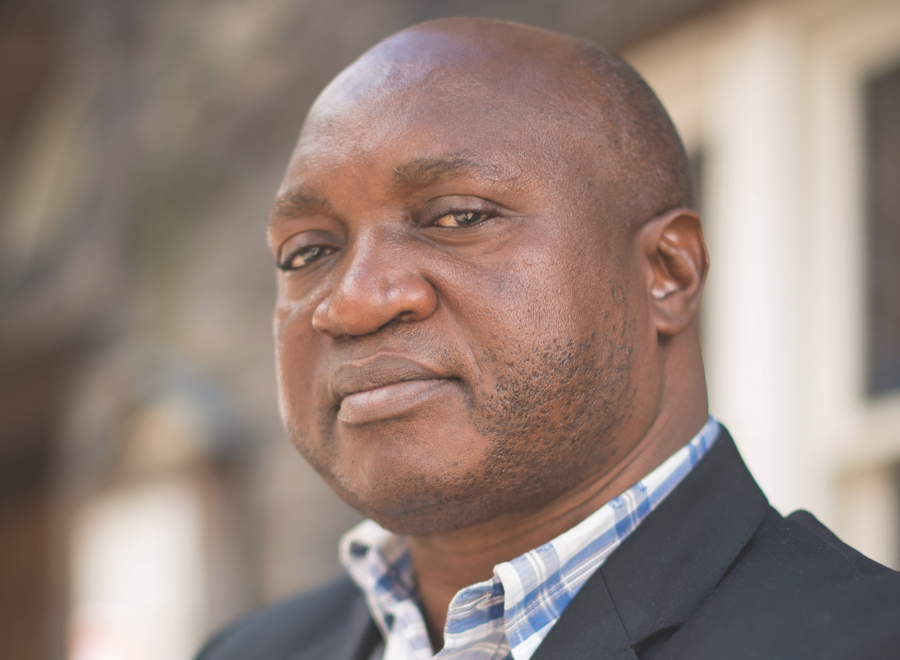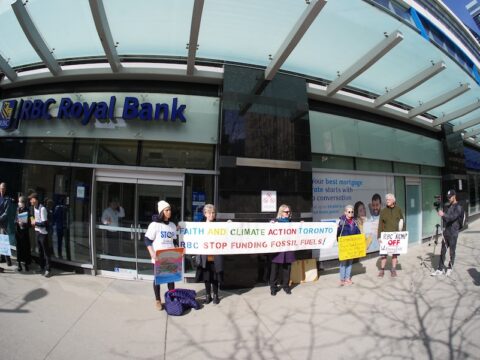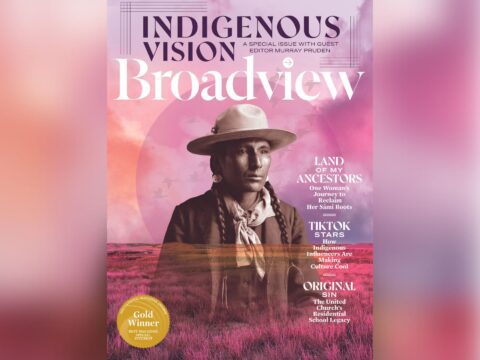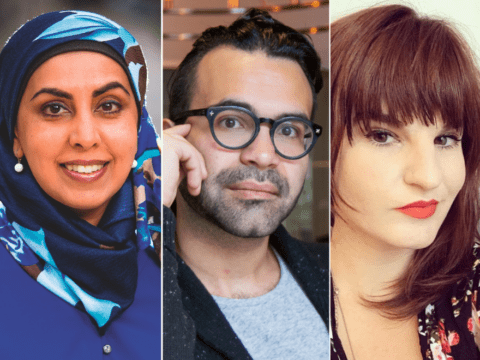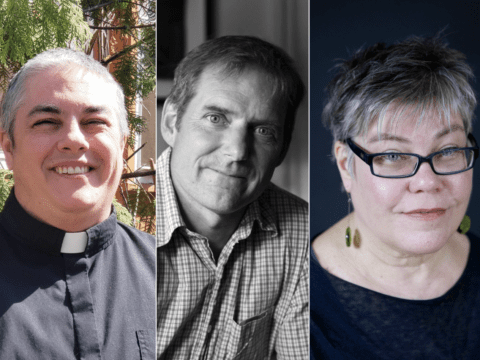Bishop Dieudonné Mbaya Tshiakany of the Church of Christ in Congo visited Canada this fall to talk about how his country is rebuilding after years of conflict. He spoke to Chantal Braganza in Toronto.
Chantal Braganza: Can you tell us a little about your work?
You may unsubscribe from any of our newsletters at any time.
Bishop Dieudonné Mbaya Tshiaknay: I am a Congolese bishop from the Church of Christ in Congo, which comprises 82 communities. Our denominations include Methodist, United Methodist, Free Methodist, Baptist, Presbyterians, Mennonites, Anglicans and all the Protestant denominations in their variety. I am the national chairperson of the National Synod, which gathers once every three years. I am also the president of the same church in the state of Eastern Kasai, where I live.
CB: You grew up in Kasai, studied in Jerusalem and have since worked on reparation projects at home and represented these humanitarian issues abroad. How does this international experience affect your world view?
DMT: It has a tremendous impact. I remain the same person, but I look at the situation differently. Sometimes you go to countries like Canada or the United States or Europe, and you look at people as they eat, as they are happy, their kids going to school; and sometimes they complain about small things. When you are in this setting where people can freely live and make their lives, and then you look at what is [happening] to your people, people who also have the right to live as everyone in the world, you feel like something is wrong. It is good to have time out and breathe, but it also brings you feelings of duty, of even anger, to some extent.
CB: Conflict in the Democratic Republic of Congo (DRC) has a long history. What are the most important things that people should know?
DMT: I will target three. First, I have heard people say that this [violence] is a tribal thing. It is not just a local issue. It is an international problem. There are international interests in mineral resources, in coltan from Congo — the mineral used to make cellular phones. Eighty percent of the world’s production of it is there, but [the industry] is not structured or organized. And people are just taking.
The second thing I want people to understand is that the [Congolese] population has the right to live peacefully. People often talk about the phenomenon of sexual violence, of massive rape of women [which was used as a weapon of war in recent conflicts]. This is something we can’t just leave with the Congolese. These women who are raped in front of their husbands, their kids, their young boys and daughters — it is a destruction of their life forever.
The third is that we are happy and grateful to God because the war is over. But after this last war [which ended in 2013], huge populations were displaced. Now they are going back home, and they find that their houses were destroyed or occupied by other people, or that soldiers have taken everything. We have a great challenge to meet the humanitarian needs of the populations there.
CB: Helping the victims of sexual violence in such a context is particularly complex. What are the challenges in doing this type of rebuilding?
DMT: It means, in one way, medical treatment of people who have been destroyed physically. But there is also the psychological treatment of those who have been subjected to and assisted in such violence, and the rebuilding of the family. Many families have been broken because the husband could not support his wife after what happened, or some women just decided to leave, unable to face their families. The church is trying, but we need the means to train people to deal with this, to work with those who don’t want to talk about it because they are ashamed.
CB: You also mentioned mining interests. What role do Canadian mining companies play in Congo?
DMT: Some Canadian enterprises are involved in mining in Congo, and their behaviour is not totally different from other businesses that bring harm to the environment and to the people in the area. The business of mining itself is not bad. Congo is not a closed country, and we are open to others. But let’s do it with a human heart and face, instead of just taking and not giving anything back.
CB: Are there cases where mining projects are important to local economies?
DMT: There is an old diamond enterprise in the centre of Congo called MIBA. It was established during colonial times and passed on to the DRC government after independence. Though 20 percent of the shares still belong to a Belgian group, 80 percent belong to the public treasury.
But during all those years of war, investment in the company and its equipment was really low, if not absent. It brought the company to a total closure in 2008, [affecting] a personnel of about 7,000 people and their families. There were also small companies delivering services, some four or five hospitals and a great number of schools linked to the mine. All of that has been devastated. MIBA is rebuilding again, but it is really a huge undertaking because workers have not been paid for months.
CB: The ecumenical community in the DRC seems to be a strong voice for the country’s development and humanitarian needs, speaking out to the government and to the United Nations. What response have you had from the international church community?
DMT: We have not been alone these last years, as it was before, in the years of war between 1998 and 2008. We’d ask ourselves, where is the world? But since 2007, 2008, we have received a great deal of visits from brothers and sisters in the World Council of Churches and from The United Church of Canada.
Sometimes people think that it is just a question of sending money and you have solved the problem. So to see brothers and sisters speaking out, coming around, is really powerful. It has a great deal of meaning for us because the situation is not just local.
CB: What do you think is most necessary to move the DRC’s recovery forward?
DMT: We think it’s important to focus on the education of good and new leadership. The DRC is a large country with wonderful people willing to build a good nation. But it also has huge natural resources. You can name any mineral in the world, and I can show you on the map where it is in Congo.
In the 1960s, Congo had a level of economy ranked the same as Canada. Now we are far behind. We think it’s a question of leadership. Not only top leadership — because you can have a good president, but when you have people on every other level doing wrong and bad things, it does not work — but the general leadership in the country. So we think that training responsible leaders is important.
CB: What gives you hope for the future?
DMT: There are many signs of hope. One is that the war is over, and this is huge. During the war, even if you wanted to help, in a great portion of the country you simply could not. Another is seeing the expression of needs and hope by the Congolese people themselves. Now that we are heading to a new election in 2016, the religious leaders of the DRC — Catholic, Muslim, Protestant and Kimbanguist, which is an independent church — have sat down together to create a commission on integrity and electoral mediation. We are also doing a great deal of education work, so people know that when the election arrives, we should all work together to make sure that it is fair, it is free, and it takes into account everyone in the country.
This interview has been condensed and edited.
***
This story first appeared in The United Church Observer’s December 2014 issue with the title “‘People say that violence in Congo is a tribal thing. But it is not just a local issue. It is an international problem.’”

